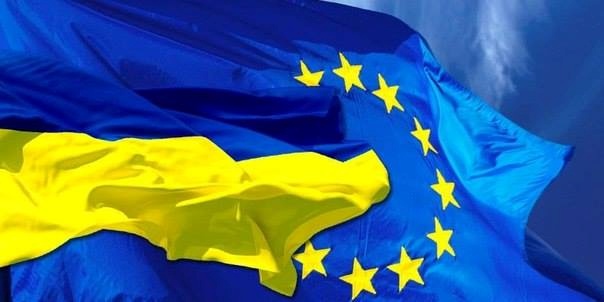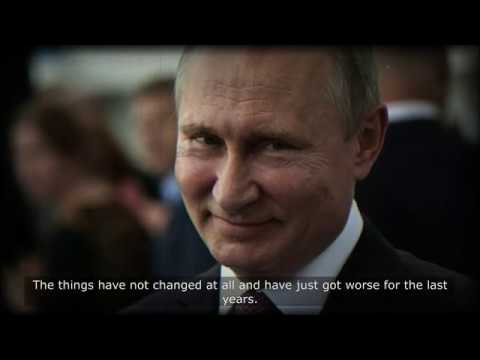
On the eve of the referendum that should determine the fate of the EU-Ukraine Association Agreement debates between its supporters and opponents are taking place in the Netherlands. One of the main discussion points is cooperation between Ukraine and the EU in security and defense in view of the conflict in Eastern Ukraine. In particular Bert Koenders, Minister of Foreign Affairs of the Netherlands, said that the Association with Ukraine serves to security interests of the Netherlands, as it helps to stabilize the situation on the eastern border of the European Union that “is important for both – Dutch and Ukrainian – economies”. Meanwhile, Thierry Baudet, Chairman of the Forum for Democracy, warns that “The agreement contains elements of security and defense policy between the EU and Ukraine, and it is unreasonable in view of Russia’s policy.”
However, the critical judgments about the agreement with Ukraine don’t have any reason, neither legal, based on the content of international agreements and documents, nor with the real experience of using of EU military forces by countries abroad. The most important – today there is no even slightest hint that the EU will go to the accommodation of military or peacekeeping force in eastern Ukraine, as the current policy of the EU on Ukraine in the field of security and defense, and in particular the provisions of the Agreement, provides for totally other things.
What does the “security policy” of the EU mean?
The impetus for the creation of a common EU security policy was the Lisbon Treaty, which came into force in 2009. Article 42 of Agreement states that for providing the common security and defense policy “Member States shall make civilian and military capabilities available to the Union for the implementation of the common security and defense policy, to contribute to the objectives defined by the Council”. That is the point which must potentially scare EU citizens! Thus the Common security policy will force Member States to provide the military and also civilian (!) assistance to the country with smoldering military conflict. However, such an interpretation is possible only if taken out of the context information, as Article 43 of the same Treaty states the Union’s capabilities to use military means is limited to the missions, which “include joint disarmament operations, humanitarian and rescue tasks, military advice and assistance tasks, conflict prevention and peace-keeping tasks, tasks of combat forces in crisis management, including peace-making and post-conflict stabilisation”. So there are many and many options and military and peacekeeping missions are not taken very often by cautious EU.
Whom, how and under what circumstances…
As to Ukraine and its conflict in the East with still uncertain official status undefined, Europeans are actively involved in form of humanitarian missions and consultations. As for military intervention, Donald Tusk in late April last year said that the military mission of the EU on Ukrainian territory will not take place.
As for Russia the NATO and the EU consider such measures as economic pressure and consultative support to Ukrainian military as well as strengthening partnerships with Ukraine are to be effective. Compliance with international agreements by Ukraine (Minsk agreements) to resolve the situation in the East indicates about its understanding of Western partners’ behavior. There is no reason to think that this position will change after the full ratification of the Association Agreement with Ukraine. First, because of complicated decision-making mechanism. A weighty decision on the peacekeeping mission has a long way to go through.
Over the past decade the EU had taken 23 civilian missions and military operations on three continents. Among them – peacekeeping actions after the tsunami in Aceh province (Indonesia); protection of refugees in Chad; the fight against piracy in Somalia and the Horn of Africa. So we can assume that the EU intervenes humanitarian and consulting in conflicts that do not threaten the system of collective security in Europe and EU citizens. Military intervention is possible only if the threat is dire and could harm the interests of the EU and its citizens, like in case of Somali pirates. And, therefore, the fact of signing or ratification of the association agreement between the countries is not determinative. The defining is just the nature, scope and degree of danger of the conflict.
What was promised to Ukraine?
According to the EU-Ukraine Association Agenda the detailed priorities of military cooperation between Ukraine and the European Union are the expansion of military and political dialogue on the leadership level of the Armed Forces of Ukraine and of the EU, Ukrainian officers training in the EU educational institutions, the preparations to the joint military exercises, as well as multinational peacekeeping operations.
In fact, the cooperation between the Ministry of Defense of Ukraine and its EU counterparts are mainly confined to official meetings, visits to share experiences, advisory and other predominantly formal measures. In addition, the Ukrainian military are involved in the peacekeeping operations and troops, as well as in the EU Multinational Tactical Battle Groups. That is, Ukrainian military involved in solving problems of global security and not European military solve Ukrainian problems.
So any insinuations, speculations and manipulations regarding the consequences of the EU – Ukraine Association Agreement for the EU security are bizarre and groundless. Behind the critics of Agreement is forgotten that as a result of reforming Ukraine, the EU will receive a good ally and partner who will share its values not only declaratively, but documented, legally and in practice.



